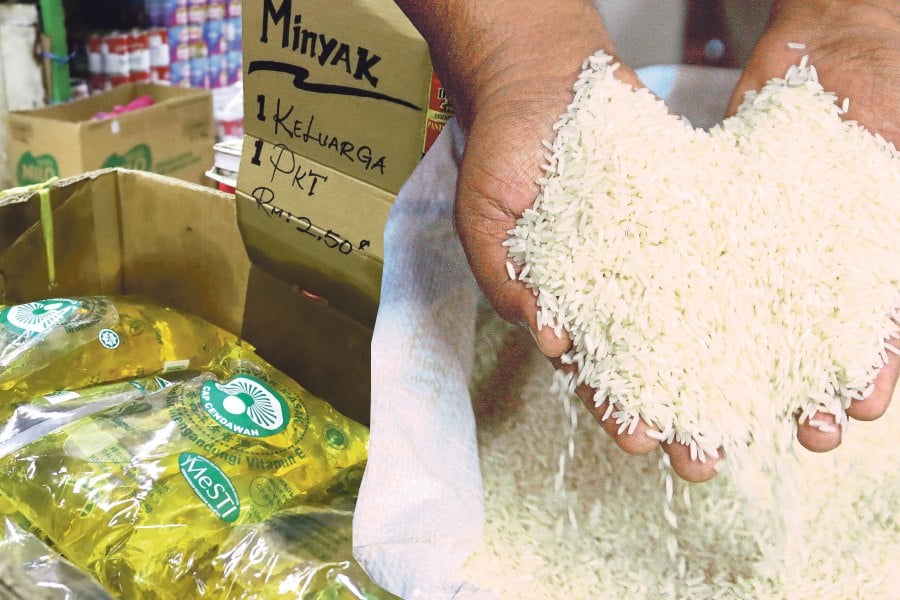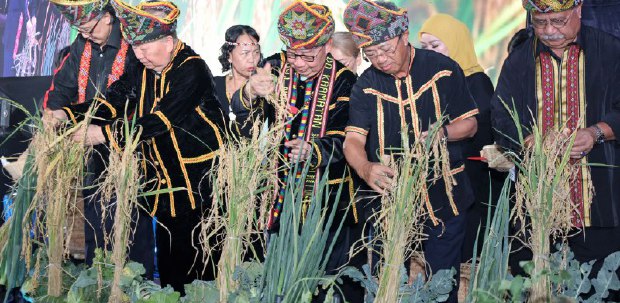FOOD security is emerging as a troublesome issue for the world. We are not spared. It is proving to be even more critical than energy security.
While energy concerns only choices, food must deal with potential shortages.
As the world population races upwards of eight billion, the concern about whether there will be enough food to go around has attracted the attention of not only the policymakers but more so the man on the street.
High food prices have become a key feature of election campaigns. Arable land to grow food is reaching its limit.
What with desertification, salination and soil pollution, mankind is looking at different approaches to produce food. This is where new ways of farming have taken shape.
These include urban vertical farms and other less land-intensive methods. Biotechnology is also increasingly deployed to generate more robust high-yielding planting materials. It includes the incorporation of new traits such as heat resistance and disease avoidance.
In Malaysia, the rice issue has not abated. The country does not produce enough for the population. The irony is that we still have vast areas of abandoned land at our disposal. The low production is on the back of poor productivity and low compensation for farmers.
Add to that the inability to effectively use imports to balance supply and demand, many are not surprised that the rice business is still mired in controversies. The presence of business cartels complicates matters even more. Protein is another source of food which has created much concern.
The livestock source has its own share of issues concerning sustainability. Critics have focused on methane emissions to discredit cattle farming in countries like Brazil where new lands are opened for ranching.
Fish harvested from the sea is also reported to be on the decline because of overfishing. Ocean pollution, especially uncontrollable plastic waste, has also contributed to the species disappearance. Not to mention their negative impact on food safety. This has given rise to the expansion of aquaculture to produce fish proteins, both marine and freshwater.
Aquaculture is seen as a viable business to incentivise entrepreneurship among the population. If done on the right scale, aquaculture can be a powerful instrument to help the marginalised population steer out of poverty.
Nowadays, new techniques are available to undertake aquaculture using tanks. There is no need to dig ponds. This can only happen if the business is well organised. A cooperative approach is one worth considering.
This will not only facilitate better marketing, but it will also enable the deployment of the latest technology and will add value going downstream.
New forms of financing will have to be created. Waqf funding for example can be one source of financing to help realise such a business among the poor. The country's agencies which collect zakat and manage waqf assets can play a powerful role in invigorating such aquaculture industry.
Ending poverty is the number one goal under the UN-SDGs (sustainable development goals). Malaysia, under the current administration, has also pledged to make ending poverty a top priority. The aquaculture industry can be a possible route to address not only food security issues but also a path to alleviate poverty.
It is not much different from what we did in the early days of the Federal Land Development Authority (Felda) scheme for growing oil palm. The reason why the palm oil business has achieved much success is because it caters principally for global food demand.
No food system will be complete without the use of edible oil. Without palm oil, the edible oil security of the world is impaired. Palm oil now accounts for more than 30 per cent of the global trade in oils and fats.
Aquaculture can deliver the same impact as palm oil on the world. It would provide a healthy supply of proteins for the world.
Att the same time, managed the Felda way, it can be a powerful instrument to alleviate poverty.
It is time for the government to enact the necessary policies to incentivise the growth of the industry. And Waqf financing can be the right tool to fund such a venture.
* The writer is a professor at the Tan Sri Omar Centre for STI Policy, UCSI University, and Associate Fellow at the Ungku Aziz Centre for Development, Universiti Malaya






